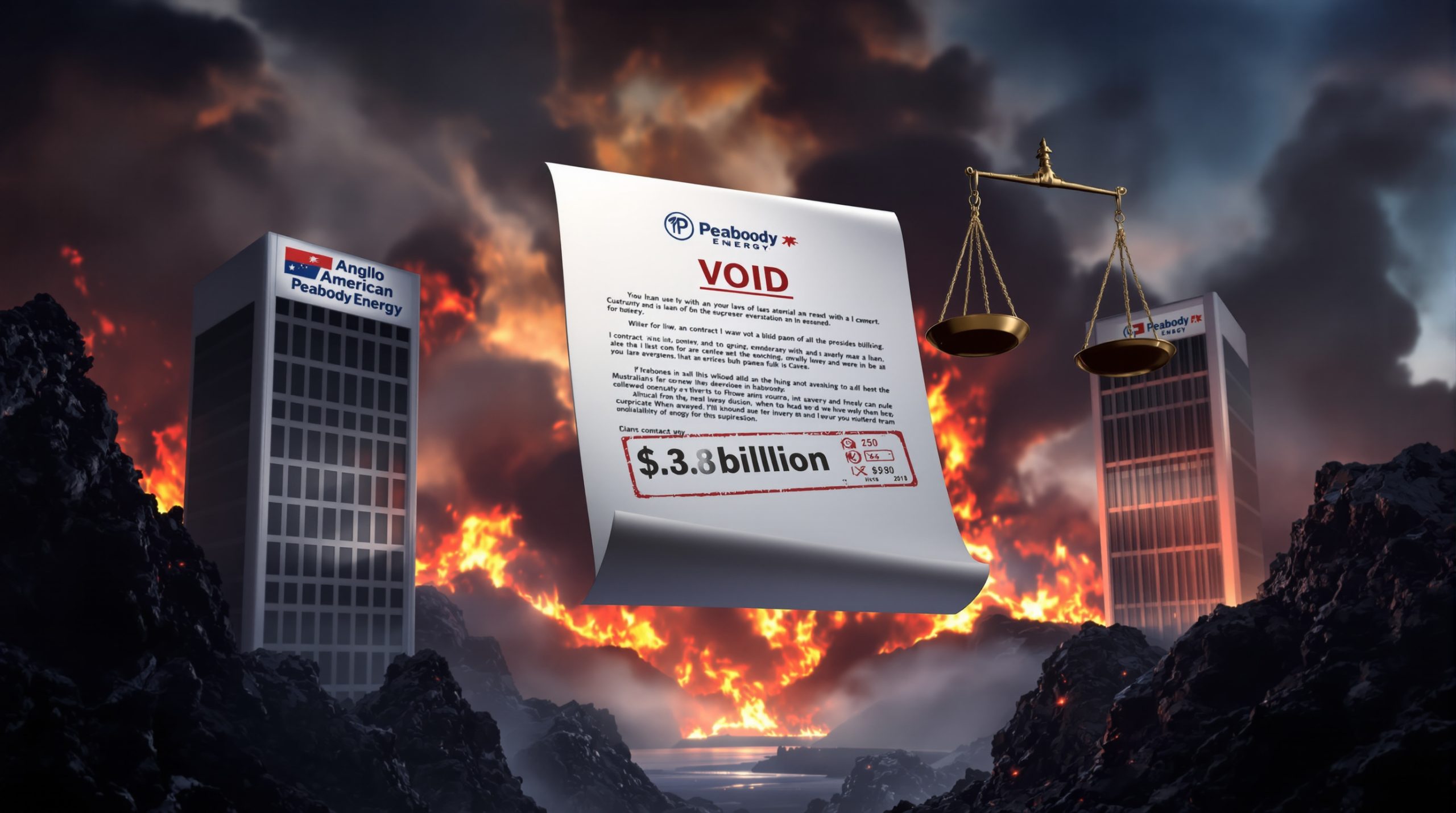Africa's Resource Power Play: How Mineral Wealth Shapes Global Politics
Africa's vast mineral wealth has evolved from merely economic assets to powerful geopolitical leverage in international relations. As global powers increasingly recognize mineral security as national security, African nations find themselves at a crossroads: unite to maximize collective bargaining power or risk fragmentation that diminishes their influence on the world stage.
The Strategic Value of African Resources
The African continent possesses substantial reserves of critical minerals for the energy transition, technology development, and industrial applications. These resources have become central to global supply chains and economic security, transforming Africa's position in international relations from peripheral supplier to strategic partner.
According to data from the World Bank, Africa holds approximately 30% of the world's mineral reserves, including 40% of gold, 60% of cobalt, and 90% of platinum group metals. This extraordinary concentration of resources places African nations in a position of potential strength on the global stage.
The New Resource Nationalism Challenge
Recent trends show resource nationalism reemerging across several African nations, creating both opportunities and risks. This approach seeks to maximize domestic benefits from natural resources but can potentially deter international investment if not carefully balanced with partnership strategies.
Zimbabwe, Tanzania, and the Democratic Republic of Congo have all implemented policies aimed at increasing state control over natural resources in recent years. The DRC cobalt ban is a prime example of how nations are asserting greater control over their mineral wealth. While these policies aim to ensure greater domestic benefit from resource extraction, they have sometimes had the unintended consequence of reducing foreign investment.
Why Has Mineral Security Become National Security?
The fundamental shift in how resources are viewed has profound implications for Africa's global positioning. What was once primarily an economic consideration has now become a central security concern for nations worldwide.
The Critical Minerals Revolution
The global race for critical minerals has intensified as countries recognize their strategic importance for economic development, defense capabilities, and technological advancement. This shift has elevated Africa's geopolitical significance as home to substantial reserves of:
- Cobalt (Democratic Republic of Congo dominates global production with over 70% of worldwide supply)
- Rare earth elements (significant deposits across several African nations)
- Platinum group metals (South Africa holds approximately 80% of known reserves)
- Lithium, graphite, and manganese (essential for battery technology)
The International Energy Agency projects that demand for critical minerals for clean energy technologies will increase by 400-600% by 2040, placing Africa's resources at the center of global energy transition strategies.
Great Power Competition for African Resources
Major global powers are actively competing for access and influence across Africa:
- China has established dominant positions in several resource-rich regions through infrastructure development and mining investments, investing over $300 billion across the continent since 2005
- The United States has renewed strategic interest in African partnerships to secure supply chains through initiatives like the Minerals Security Partnership
- European nations are pursuing resource diplomacy to reduce dependency on single-source suppliers
- Russia has expanded its presence through military cooperation and resource extraction agreements in nations like Mali and Central African Republic
This competition creates leverage opportunities for African nations to negotiate more favorable terms and partnerships. According to the African Development Bank, strategic mineral development could add $450 billion to Africa's GDP by 2035 if properly leveraged.
How Can Africa Maximize Its Resource Leverage?
Africa's ability to transform its mineral wealth into lasting economic development and geopolitical influence depends on strategic coordination and partnership development.
The Imperative for Continental Unity
BloombergNEF metals and mining head Kwasi Ampofo emphasizes that Africa's greatest risk is failing to speak with one voice regarding resource strategy. Individual negotiations significantly weaken collective bargaining power compared to a coordinated continental approach.
"The biggest danger is that Africa would not speak with one voice on how the resources are used as collateral and speak as individual countries," Ampofo noted during a September 2025 briefing on the upcoming Mining Indaba conference. This fragmentation allows external powers to play nations against each other, ultimately diminishing the continent's collective leverage.
Strategic Partnership Models
Successful resource leverage requires multidimensional partnerships:
-
Government Collaboration: National, provincial, and local authorities must align policies to create coherent resource governance frameworks. This multi-level cooperation prevents contradictory regulations that create confusion for investors.
-
Private Sector Engagement: Mining companies and investors need stable, mutually beneficial frameworks that balance profit motives with national development objectives. These partnerships should include technology transfer and skills development components.
-
Civil Society Inclusion: Social license to operate requires addressing community concerns and ensuring environmental protections. Civil society organizations can serve as vital bridges between communities and mining operations.
-
Academic Integration: Universities and research institutions develop skills and innovation that add value to raw mineral extraction. Educational partnerships can create centers of excellence in mining technology and mineral processing.
-
Traditional Leadership: Community gatekeepers play crucial roles in social acceptance and benefit distribution. Their inclusion in decision-making processes is essential for sustainable resource development.
Infrastructure Development as Leverage Multiplier
Resource leverage is severely constrained by infrastructure limitations. Strategic focus areas include:
- Energy security and grid reliability (only 43% of Africans have access to electricity)
- Transportation networks (rail, roads, ports) with an estimated $130-170 billion annual funding gap
- Water management systems crucial for both mining operations and community needs
- Digital connectivity to enable modern mining technologies and market access
The African Development Bank estimates that closing Africa's infrastructure gap would require investments of $130-170 billion annually, with a financing shortfall of $68-108 billion.
What Are the Five Key Strengths Africa Must Develop?
Africa's mineral wealth represents potential rather than guaranteed prosperity. Transforming these resources into sustainable development requires building five fundamental strengths.
1. Capital Attraction and Deal Flow
The mining sector requires substantial investment capital. African nations can enhance their leverage by:
- Creating transparent investment frameworks with clear regulations and procedures
- Developing regional capital markets to mobilize domestic investment
- Tracking and facilitating deal flow through strategic forums like Mining Indaba
- Building investor confidence through policy stability and contract enforcement
According to the World Bank, mining projects typically require $500 million to $5 billion in capital expenditure before generating revenue, highlighting the critical importance of attracting investment.
2. Infrastructure Integration
Infrastructure development must be approached holistically, connecting:
- Energy generation and distribution systems that power mining operations and surrounding communities
- Transportation networks that enable cost-effective mineral export
- Water management systems essential for both mining operations and community needs
- Communications infrastructure that supports modern mining technologies
- Urban development planning that creates sustainable mining communities
The Program for Infrastructure Development in Africa (PIDA) estimates that integrated infrastructure projects could save $172 billion in transportation costs and boost intra-African trade by 50%.
3. Buyer-Supplier Relationships
The next commodity supercycle is likely to be buyer-driven, requiring:
- Strategic relationship building with end-users in clean energy, automotive, and technology sectors
- Development of long-term offtake agreements that provide market certainty
- Value chain integration opportunities through partnerships with manufacturers
- Downstream processing capabilities to capture greater value from mineral resources
Recent battery manufacturing investments by companies like Tesla and Volkswagen highlight the growing importance of direct relationships between mineral producers and end-users.
4. Skills Development and Talent Retention
Africa possesses world-class mining expertise that must be recognized and developed:
- Supporting technical education institutions through industry partnerships
- Creating career pathways in mining and related sectors for young Africans
- Preventing brain drain through competitive opportunities and working conditions
- Showcasing African mining professionals on global platforms to counter misconceptions
According to the African Mining Vision, mining-specific skills development programs could create an additional 400,000 jobs in mining and related sectors across the continent.
5. Governance Excellence
Investment attractiveness correlates strongly with governance quality:
- Regulatory predictability and transparency reduce investor uncertainty
- Contract enforcement and rule of law protect legitimate business interests
- Anti-corruption measures ensure resource revenues benefit citizens
- Environmental and social governance standards align with global expectations
The Fraser Institute's Annual Survey of Mining Companies consistently shows that governance factors significantly influence investment decisions, often outweighing geological potential.
How Is Resource Nationalism Reshaping African Mining?
The resurgence of resource nationalism across Africa represents both a challenge and an opportunity for strategic mineral development.
The Double-Edged Sword of Resource Control
Resource nationalism—government policies aimed at increasing state control over natural resources—has gained momentum across Africa. While potentially increasing domestic benefits, poorly implemented policies can:
- Deter foreign investment through unpredictable regulatory changes
- Reduce technology transfer as companies hesitate to deploy advanced solutions
- Limit access to global markets through retaliatory trade measures
- Decrease overall sector development by reducing capital availability
Recent examples in Tanzania, where mining regulations were abruptly changed, initially led to a 50% drop in exploration spending before more balanced approaches were negotiated.
Balancing National Interest and Global Partnership
Successful resource strategies balance legitimate national interests with international partnership by:
- Ensuring fair revenue sharing through transparent taxation and royalty systems
- Building local content and participation requirements that are realistic and progressive
- Developing domestic processing capabilities through strategic industrial policies
- Maintaining investment attractiveness through regulatory stability and consultation
Botswana's diamond sector provides an instructive example, with the government holding significant equity stakes while maintaining favorable conditions for international partners, resulting in decades of stable development.
What Role Do Traditional Leaders Play in Resource Leverage?
Traditional leadership structures remain vital in many African mining regions, serving as critical interfaces between modern mining operations and local communities.
Community Gatekeepers and Social License
Traditional authorities often serve as critical intermediaries between mining operations and local communities:
- Representing community interests in negotiations with companies and governments
- Facilitating land access and use agreements based on customary rights
- Ensuring cultural heritage protection in mining development plans
- Distributing community development benefits according to local priorities
In Ghana and South Africa, traditional leaders have successfully negotiated community development agreements that have become models for benefit-sharing arrangements.
Integrating Traditional and Modern Governance
Effective resource governance integrates traditional authority structures with formal regulatory frameworks to:
- Enhance legitimacy of resource agreements through dual approval processes
- Prevent community conflicts through early and meaningful consultation
- Ensure equitable benefit distribution through transparent arrangements
- Protect cultural and environmental values important to local communities
Research by the World Bank indicates that mining projects that effectively engage traditional governance structures experience 60% fewer conflicts and delays than those that bypass these authorities.
How Can Africa Strengthen Its Position in Global Mineral Politics?
Africa's mineral wealth provides unprecedented leverage potential, but realizing this potential requires strategic coordination and institution-building.
Continental Coordination Mechanisms
Several existing frameworks could be strengthened to enhance collective resource leverage:
- African Union Minerals Development Strategy offers a continental vision for resource governance
- African Mining Vision implementation provides detailed roadmaps for sustainable development
- Regional economic community coordination can harmonize policies across neighboring states
- African Continental Free Trade Area (AfCFTA) integration reduces barriers to regional value chains
The AfCFTA, when fully implemented, could increase intra-African trade by 52.3% according to UN Economic Commission for Africa projections, creating larger markets for mineral processing and manufacturing.
Strategic Resource Diplomacy
African nations can enhance their position through coordinated diplomatic approaches:
- Joint negotiation positions on key minerals to prevent being played against each other
- Collective environmental and social standards that prevent regulatory arbitrage
- Shared infrastructure development initiatives that enhance regional connectivity
- Coordinated response to external pressure from consumer nations and global markets
The African Union's common positions on climate negotiations provide a model for how collective diplomacy can amplify African voices in global forums.
Value Chain Integration
Moving beyond raw material extraction to processing and manufacturing:
- Developing regional processing hubs for key minerals in strategic locations
- Building manufacturing capacity for mineral-dependent products like batteries and solar panels
- Creating special economic zones for mineral beneficiation with supportive policy frameworks
- Investing in research and development for value-added technologies
Studies by UNECA indicate that mineral beneficiation could increase the value of Africa's mineral exports by 400% through downstream processing alone. South Africa beneficiation initiatives demonstrate how countries can capture more value from their mineral resources.
What Future Challenges and Opportunities Exist?
Africa's mineral wealth positions it centrally in several global megatrends that will shape future development opportunities.
Climate Change and Energy Transition
Africa's mineral wealth positions it centrally in the global energy transition:
- Critical minerals for renewable technologies place Africa at the heart of decarbonization
- Green hydrogen production potential leverages abundant solar and wind resources
- Carbon capture and storage opportunities utilize geological formations and technical expertise
- Climate adaptation infrastructure needs create markets for industrial minerals
The International Energy Agency projects that Africa could produce 5,000 megatons of green hydrogen annually by 2040, potentially worth over $300 billion in export value.
Technology and Innovation
Technological advancement creates both challenges and opportunities:
- Automation and its impact on employment require proactive workforce planning
- Digital transformation of mining operations enhances efficiency but requires new skills
- Remote sensing and exploration technologies unlock previously inaccessible resources
- Blockchain for supply chain transparency meets growing consumer demands for ethical sourcing
McKinsey estimates that digital technologies could generate $321 billion of value for the mining industry evolution globally by 2035, with African operations positioned to capture a significant share.
Demographic Dividend
Africa's young and growing population represents both a challenge and opportunity:
- Creating sufficient employment opportunities in mining and related sectors
- Developing skills for the future mining sector through education and training
- Building sustainable communities around resource development
- Ensuring intergenerational equity in resource management through sovereign wealth funds
With 60% of Africa's population under 25 years old, the continent's demographic profile offers a potential workforce advantage if properly developed through education and employment opportunities.
The Path Forward for African Resource Leverage
Africa stands at a pivotal moment in global resource politics. The continent's mineral wealth provides unprecedented leverage in international relations, but maximizing this potential requires strategic coordination, partnership development, and governance excellence.
By speaking with one voice on resource matters, developing strategic partnerships across sectors, and investing in infrastructure and skills development, African nations can transform their mineral endowment into lasting geopolitical influence and sustainable development.
The Mining Indaba 2026 theme of "Stronger Together" captures the essential truth that Africa's resource leverage depends on continental unity, collaborative partnerships, and strategic coordination. Individual nations pursuing narrow resource nationalism risk undermining the collective bargaining power that could reshape global mineral politics to Africa's advantage.
As the global economy transitions toward cleaner energy and advanced technologies, Africa's mineral wealth places it in a position of potential strength. The continent's ability to convert this geological endowment into development outcomes and geopolitical influence will depend largely on how effectively its leaders can coordinate resource strategies and develop the institutional capacity to negotiate favorable partnerships.
African resource leverage in global politics ultimately depends not just on what lies beneath the soil, but on the strategic vision, unity, and governance excellence that guides how these resources are developed and deployed in service of the continent's people. The temporary Namibia uranium halt demonstrates how even individual decisions by countries can affect global mineral markets, underscoring the potential power of coordinated action.
Looking for an Edge in ASX Resource Investment?
Discover significant mineral announcements before the market with Discovery Alert's proprietary Discovery IQ model, delivering real-time alerts on major ASX discoveries to give you a crucial advantage. Explore how historic discoveries have generated substantial returns by visiting Discovery Alert's dedicated discoveries page and begin your 30-day free trial today.




